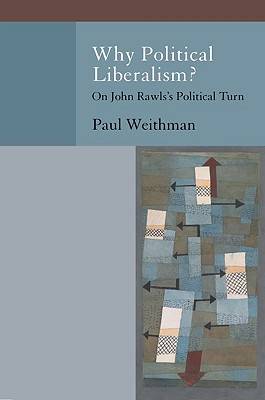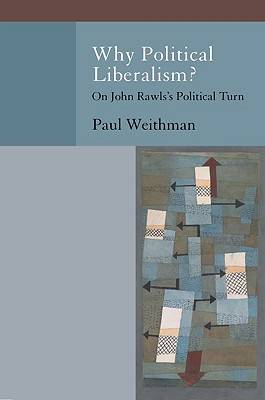
- Retrait gratuit dans votre magasin Club
- 7.000.000 titres dans notre catalogue
- Payer en toute sécurité
- Toujours un magasin près de chez vous
- Retrait gratuit dans votre magasin Club
- 7.000.0000 titres dans notre catalogue
- Payer en toute sécurité
- Toujours un magasin près de chez vous
Why Political Liberalism?
On John Rawls's Political Turn
Paul (Professor of Philosophy, Professor of Philosophy, Universi
174,95 €
+ 349 points
Description
Paul Weithman offers a fresh, rigorous, and compelling interpretation of John Rawls's reasons for taking his so-called "political turn."
Spécifications
Parties prenantes
- Auteur(s) :
- Editeur:
Contenu
- Nombre de pages :
- 400
- Collection :
Caractéristiques
- EAN:
- 9780195393033
- Date de parution :
- 03-02-11
- Format:
- Livre relié
- Dimensions :
- 236 mm x 165 mm
- Poids :
- 708 g

Les avis
Nous publions uniquement les avis qui respectent les conditions requises. Consultez nos conditions pour les avis.






